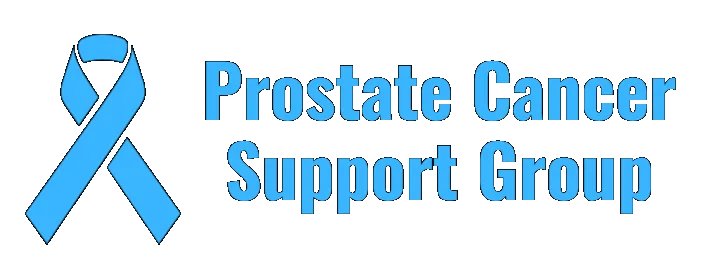From Surviving to Thriving: Rebuilding Sexual Relationships
Post-Prostate Cancer Treatment
January 12, 2025, by Coach Brian McCarthy

"Post-treatment, intimacy may shift like the tides, but each wave brings new opportunities for closeness. Adaptation is key; explore, communicate, and rediscover each other in this new light." - CLC Brian McCarthy
The journey through prostate cancer treatment is not just a battle against illness; it can also bring unexpected challenges to one's sexual health and relationships. Many men are caught off guard by the side effects that impact their intimacy, often leading to feelings of isolation or frustration.
Introduction to Prostate Cancer and Sexual Health
Prostate cancer, a prevalent malignancy among men, often intersects with the realm of sexual health in ways that many may not anticipate. The diagnosis itself can trigger a whirlwind of emotions and lead to significant lifestyle changes, which may affect intimacy and sexual function. However, understanding the nuanced relationship between prostate cancer treatment and sexual health can empower patients to navigate these challenges more effectively.
Recent studies have highlighted that open communication with healthcare providers about sexual health concerns is essential for improving the quality-of-life post-diagnosis. Many men experience erectile dysfunction or altered libido following treatments such as surgery or radiation, yet these issues are often under-discussed. By fostering an environment where patients feel comfortable discussing their experiences, healthcare professionals can offer tailored interventions—ranging from medication adjustments to counseling—that can help reclaim sexual vitality.
Moreover, emerging therapies aimed at preserving sexual function during treatment are gaining traction, offering hope for those grappling with the dual impacts of prostate cancer and intimacy. Recognizing that sexual health is integral to overall well-being encourages a more holistic approach to treatment and recovery, emphasizing that life post-prostate cancer can still be fulfilling and vibrant. Engaging with support groups or therapy can also provide valuable insights, reminding men that they are not alone on this journey and that their sexual health deserves attention just as much as their physical recovery.
Understanding Prostate Cancer Treatment Options
Navigating sexual health and intimacy after a prostate cancer diagnosis can feel daunting, yet understanding treatment options is crucial for maintaining these aspects of life. Treatments like surgery, radiation, and hormone therapy can significantly impact erectile function and libido, but they don’t have to spell the end of a satisfying sex life. Open communication with partners about fears and desires can foster intimacy beyond physical connections, creating emotional bonds that support healing.
Moreover, exploring therapeutic avenues such as pelvic floor exercises or vacuum erection devices can help restore sexual function, while counseling may provide a safe space to discuss anxieties surrounding intimacy. It's also essential to educate oneself about the potential side effects of treatments; knowledge empowers patients to make informed decisions and engage in proactive discussions with healthcare providers. By embracing this journey as a shared experience rather than an isolated battle, couples can find new ways to connect and nurture their relationship, redefining what intimacy means in the wake of adversity.
Common Sexual Health Challenges Post Prostate Cancer Treatment
Navigating sexual health after prostate cancer treatment often presents unique challenges that can significantly impact intimacy. One of the most common issues is erectile dysfunction (ED), which can stem from nerve damage during surgery or as a side effect of radiation therapy. However, it’s essential to recognize that ED is not an insurmountable barrier. Many men find success with various treatments such as vacuum erection devices, oral medications, or even penile injections, all of which can help restore confidence and function.
Beyond physical adjustments, emotional intimacy plays a crucial role in reconnecting with partners. Open communication about fears and desires can foster a supportive environment where both partners feel safe expressing their feelings. Some couples explore new forms of intimacy, including sensual massage or non-penetrative activities, which can enhance connection without the pressure of traditional intercourse. Ultimately, understanding that sexual health is multifaceted allows individuals and couples to redefine intimacy on their terms, embracing a journey of exploration and renewal together.
The Emotional Impact of Sexual Dysfunction
The emotional landscape following prostate cancer treatment can be as complex as the physical changes that accompany it. Many men experience sexual dysfunction, which can lead to feelings of inadequacy, frustration, and isolation. This shift in intimacy often extends beyond the individual, affecting relationships and creating a chasm between partners who once shared a vibrant sexual connection. Understanding that these feelings are common can be the first step toward healing; acknowledging the emotional impact of sexual dysfunction opens the door for open conversations and deeper connections.
Exploring new forms of intimacy can help redefine relationships post-treatment. Couples may find solace in discovering non-sexual expressions of love, such as cuddling, kissing, or simply spending quality time together. These activities can foster closeness and help partners navigate their feelings of loss while simultaneously reinforcing their bond. Additionally, engaging with support groups or therapy can provide an invaluable space for men and their partners to share experiences, normalize their feelings, and learn coping strategies. By reframing sexual health as a broader spectrum of intimacy rather than a narrow focus on performance, couples can cultivate a renewed sense of connection that thrives beyond the challenges posed by cancer treatment.
Communicating Openly with Your Partner
Navigating intimacy after prostate cancer treatment can feel daunting, yet open communication is the bedrock of a resilient partnership. As physical changes occur, discussing feelings and concerns candidly allows both partners to express their needs and fears. Instead of shying away from these conversations, embrace them as opportunities for deeper emotional connection. Share your experiences, whether it’s about the challenges of erectile dysfunction or shifts in sexual desire; vulnerability can foster a sense of unity and understanding.
Moreover, exploring new dimensions of intimacy can reignite passion in your relationship. Focus on non-sexual forms of affection, such as cuddling or massages, to nurture closeness without the pressure of performance. This shift not only alleviates anxiety but can also lead to discovering new ways to connect physically and emotionally. Remember, intimacy is not solely defined by sexual activity; it encompasses trust, respect, and a shared journey towards healing together. By prioritizing honest dialogue and innovative expressions of love, couples can cultivate a fulfilling relationship that thrives beyond the confines of cancer treatment.
Strategies for Enhancing Intimacy After Treatment
Navigating intimacy after prostate cancer treatment can be a complex journey, but it also presents an opportunity to deepen emotional connections. Open communication with your partner is crucial; discussing fears, desires, and expectations can foster understanding and resilience. Consider exploring new forms of intimacy that don’t solely revolve around penetrative sex—things like sensual massages or shared experiences can reignite that spark while allowing both partners to feel secure and connected.
Incorporating mindfulness practices into your routine can also enhance intimacy, shifting the focus from performance to presence. Techniques such as deep breathing or guided imagery can help alleviate anxiety and encourage a more profound emotional bond. Additionally, seeking professional guidance through couples therapy or sexual health specialists can provide tailored strategies and reassurance, creating a safe space to navigate the changes together. Embracing this phase as a time for growth and exploration can transform challenges into opportunities for renewed passion and connection.
Exploring Alternative Intimacy Methods
Navigating intimacy after prostate cancer treatment can be a transformative journey, one that invites couples to explore alternative methods of connection that go beyond traditional sexual practices. The key lies in redefining intimacy; it’s about nurturing emotional bonds and discovering new ways to experience pleasure together. Couples may find joy in sensual activities such as mutual massages, which not only foster physical closeness but also encourage open communication about desires and boundaries. This shift from conventional sexual expectations to a more holistic understanding of intimacy can create a safe space for both partners to express their feelings and needs.
Incorporating mindfulness techniques into intimate moments can enhance the experience, allowing individuals to focus on sensations rather than performance. Practices such as deep breathing or guided imagery can help partners reconnect with their bodies and each other, fostering a deeper emotional connection that transcends physical limitations. As couples experiment with these new forms of intimacy, they often discover a profound sense of closeness that enriches their relationship in unexpected ways, ultimately leading to a more satisfying and fulfilling partnership.
Seeking Professional Support and Counseling
Navigating sexual health and intimacy after prostate cancer treatment can feel daunting, but seeking professional support and counseling can illuminate the path forward. Many survivors experience a range of physical and emotional changes that can impact their sexual relationships, from erectile dysfunction to shifts in desire. Engaging with a therapist who specializes in sexual health can provide tailored strategies to rebuild intimacy, helping couples communicate openly about their needs and fears. This professional guidance not only fosters understanding but also empowers both partners to explore new dimensions of their relationship.
Moreover, support groups can serve as an invaluable resource, creating a sense of community where individuals can share their experiences and coping mechanisms. Hearing others’ stories often reduces feelings of isolation and opens up discussions about shared challenges. In addition to traditional therapy, exploring alternative therapies—such as mindfulness or sex therapy—can also offer fresh perspectives and techniques to enhance intimacy. By embracing professional support, individuals can transform their journey post-treatment into an opportunity for deeper connection and renewed exploration of love and intimacy.
Navigating Sexual Health Together
Navigating sexual health after prostate cancer treatment can often feel like uncharted territory for both partners. It's essential to recognize that intimacy goes beyond physical connection; emotional closeness and open communication are equally vital. Engaging in honest conversations about desires, fears, and changes allows couples to redefine their relationship dynamics and explore new forms of intimacy that may not have been considered before. This journey can lead to discovering innovative ways to connect—whether through sensual touch, shared experiences, or even exploring fantasies that foster a deeper bond.
Moreover, incorporating a proactive approach to sexual health is crucial. This might involve consulting with healthcare professionals who specialize in post-cancer sexual rehabilitation, utilizing devices designed to enhance sexual function, or considering counseling to address psychological aspects of intimacy. Embracing these resources can help couples regain confidence and find joy in their intimate lives again. Ultimately, the key lies in viewing this phase as an opportunity for growth and transformation—where vulnerability leads to deeper understanding and renewed passion.
Conclusion
Managing sexual health and intimacy after prostate cancer treatment is a multifaceted challenge that requires open communication and understanding between partners. The physical and emotional changes that may arise can be daunting, but with the right support and resources, couples can navigate these changes together. Engaging in honest discussions about feelings, exploring alternative forms of intimacy, and seeking professional guidance can significantly enhance the quality of life for both partners. It’s essential to remember that intimacy is not solely defined by sexual activity; emotional closeness and connection play a vital role as well. As we move forward, let us prioritize these conversations and seek out the necessary support to foster a fulfilling intimate relationship despite the challenges posed by prostate cancer.
Next Steps
Let us be your beacon of hope during this challenging journey. From emotional support to practical strategies, we tailor our coaching sessions to help you manage the roller coaster of emotions that come with dealing with prostate cancer. Together, we’ll empower you to stay strong, resilient, and optimistic in the face of adversity.
Use the calendar below to book your complementary discovery call on ‘Rebuilding Sexual Relationships Post-Prostate Cancer Treatment’ or to discuss our coaching services for you and your family.
Don’t wait… your mental well-being matters just as much as your physical health – let us walk beside you every step of the way! – book your FREE conversation to discuss how we can help you today!

